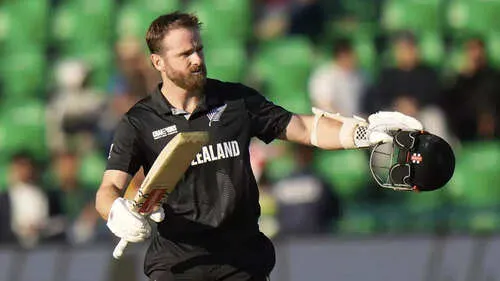
New Zealand’s veteran batter and former captain, Kane Williamson, has voiced serious concern over the direction Test cricket is heading, warning that the format’s very existence could be threatened if it continues to revolve around the “Big Three” — India, England, and Australia. Williamson, widely respected for his measured and thoughtful views, said that Test cricket’s survival depends on keeping it inclusive and globally engaging rather than limited to the powerhouses.
Speaking at a recent media interaction, Williamson said the game’s administrators must act before the format becomes an exclusive club. “If only three teams keep playing the majority of Test matches, we’ll eventually lose the balance and the beauty of the format. Test cricket was never meant to be about only the top nations — it’s about the contest, the grind, and the variety of challenges from all corners,” he said.
His comments come amid increasing concerns over the widening financial and scheduling gap between the richer boards and the smaller cricketing nations. Countries like New Zealand, Sri Lanka, Bangladesh, and the West Indies have all seen their Test schedules shrink as boards prioritize shorter formats that generate higher revenues. Williamson, however, argued that Test cricket offers the true essence of the sport — skill, patience, and mental resilience — and that these values are in danger of being sidelined.
The Kiwi star also pointed out that fans and players in emerging cricket nations are losing incentives to invest in the longer format. “When a team plays only two or three Tests a year, it’s hard to build consistency or passion around it. Players naturally drift toward leagues or white-ball cricket, where the opportunities are more rewarding and regular,” he explained.
Williamson called for collective responsibility from the International Cricket Council (ICC) and major boards to distribute resources and scheduling more fairly. He suggested that the World Test Championship (WTC) needs an overhaul to ensure equitable representation. “The WTC was a great concept, but it still heavily favors the Big Three in terms of fixtures and exposure. If that imbalance continues, it’ll be impossible for the others to compete on equal terms,” he said.
His remarks echo a growing sentiment among cricketers and fans who fear that the traditional format — once the gold standard of cricket — is being squeezed out by the demands of franchise leagues and financial realities. Several nations are already prioritizing T20 leagues over red-ball tours, with Test series becoming shorter and less frequent.
Williamson’s appeal was both emotional and pragmatic: he emphasized that protecting Test cricket is not about resisting change but about safeguarding the sport’s soul. “The purity of Test cricket comes from the diversity of opponents, conditions, and cultures. If we reduce that, we reduce its identity,” he said.
As the cricketing world debates the balance between entertainment and endurance, Williamson’s warning stands as a reminder that Test cricket’s survival hinges on inclusion, investment, and intent. If the game continues catering only to its richest boards, the longest format might soon lose the very universality that once made it the ultimate test.
12BET Shortlisted for Sportsbook Operator of the Year at SBC Awards 2025

